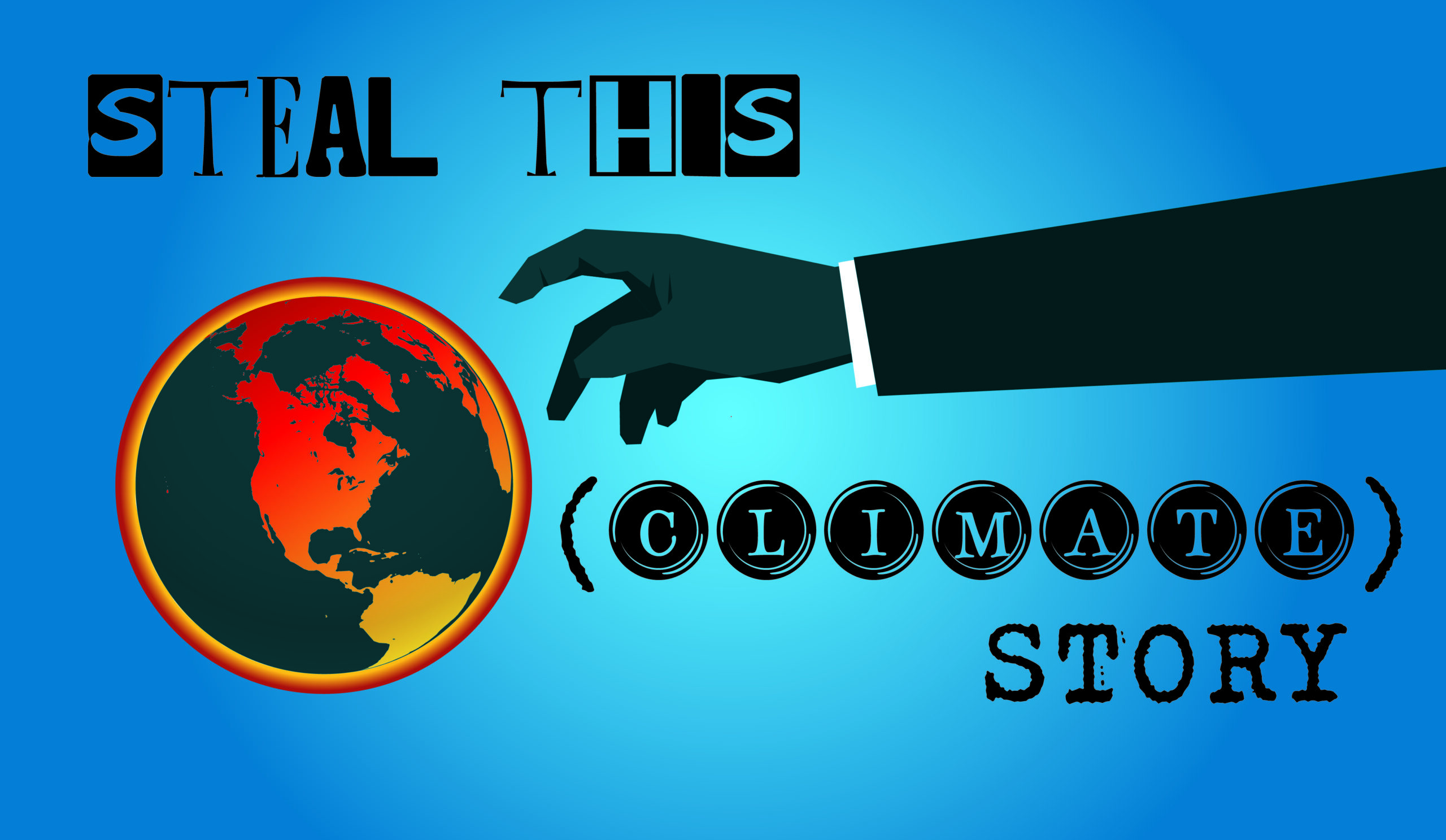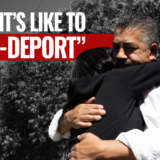Steal This (Climate) Story
Teenagers Go to Court to Force Climate Action
Lawsuits in Montana and Hawaii shine light on how climate chaos threatens their adult lives.

By the time 18-year-olds today hit the age of 35 in 2040, the scientific consensus holds that they’ll be living in a world in which climate extremes are commonplace — sea levels will rise enough to lap salt water onto the streets of Miami, New York, San Francisco, Galveston, New Orleans and many more. There will be increases in the intensity and frequency of deluges and, in the cruel action-reaction cycle of climate change, of droughts. There will be public health emergencies as new bugs and fungi follow the heat to attack humans. The price of food will rise as one crop after another is unable to survive the onslaught of pests, whose larvae used to be killed by the onset of winter but survive when the cold weather comes later. And they’ll be contending with tax increases to account for the monumental expenses of responding to all those impacts. The money will have to come from somewhere, and it probably won’t be from the richest among us.
Join our email list to get the stories that mainstream news is overlooking.
Sign up for Capital & Main’s newsletter.
The year 2040, according to the U.N.’s most recent IPCC assessment, is the year we will most likely be hitting a 1.5 degree Celsius temperature increase (as compared with temperatures in the 18th century), the tipping point for these and many other climate consequences. So, for today’s teens, our current time is like their last fling in a relatively predictable world — relatively, because the extremities of what’s now normal will, in fact, seem mild in comparison to the careening between extremes in 2040 and beyond. In other words, for teenagers today, the 2040s will not be, as they say, their father’s, or mothers’, 30s. Just as they’re taking on major life considerations — career, partnering (or not), having children (or not) — they’ll be facing a full range of climate cataclysms.
But teens are not taking this news lying down. They are going to court. And in the process they’re shining a light on the impact of climate disruptions on their futures, and taking aim at what their lawsuits allege is state government policies that have aided the expansion of the fossil fuel industries.
In Montana, a group of youths, who ranged in age from 2 to 18 at the time their lawsuit was filed in 2020, are alleging the state has failed to protect them from the ecological degradations of climate change. “Children are uniquely vulnerable to the consequences of the climate crisis,” states the complaint, which damages their “physical and psychological health and safety” and causes “economic deprivations.” The case is coming to trial in a state court in Helena this June.
The lead plaintiff, Rikki Held, a young woman who was 18 when the lawsuit was filed and is now 22, lives with her parents on a ranch in southeastern Montana. She describes in the complaint what climate change has meant for her and her family. Due to “abnormally high temperatures linked to the climate crisis,” the river her family has relied on for generations to water their crops and sustain their livestock has gone through a disruptive pattern of drying up one year, and then flooding the next.
She and her parents rely on hunting elk and deer as a food source, but the erratic temperature shifts have prompted the herds to migrate in search of grazing lands beyond their own property. They are also seeing increased viral infestations in the herds that remain due to the rapid spread of “small biting midges,” which used to be killed off by the onset of winter frosts that are far shorter in duration than they used to be. On top of that, the family’s ranch has experienced several devastating wildfires.
The cumulative effect for Held, they claim, is “stress and despair” because the state of Montana, despite knowing about climate disruption for decades, “has chosen to continue to act in a way that threatens her home and property, her family’s livelihood, and infringes upon her constitutional rights and future.” The 15 other plaintiffs in the case tell similar stories — from diminishment of fishing and hunting options to the struggle to rebuild after extreme storms to the increasing pressures on their ability to grow food.
These and other violations, they argue, constitute a violation of the “inalienable” right to “a clean and healthful environment” for present and “future generations,” which has been enshrined in the Montana state Constitution since 1972. Climate change puts those lofty words to the test. The plaintiffs, represented by a troop of seasoned environmental law attorneys affiliated with the legal services group Our Children’s Trust(OCT), collaborating with the Western Environmental Law Center and private attorneys at McGarvey Law, are pushing the courts to take that boilerplate language seriously.
The kids are the future generation that the constitution purports to protect.
The state attorney general’s efforts to block or delay the case have been rejected by the court. The trial is scheduled for June, marking the first climate challenge on constitutional grounds, in a state with a Republican governor and overwhelmingly Republican Legislature.
Kids Are Challenging the Politicians to Find Out What Their Platitudes Actually Mean
Hawaii presents another opportunity to test a constitutional guarantee to a “clean and healthful environment.” What does that mean? The plaintiffs, represented by Our Children’s Trust and Earthjustice, are determined to find out. This time they’re targeting the state’s Department of Transportation, which is accused of violating their constitutional rights by promoting highways and single-occupancy vehicles rather than lower-emission mass transit systems, and doing little to reduce the greenhouse gas emissions of the state’s own fleets of cars and trucks. Transportation, they allege, will account for nearly 60% of Hawaii’s total emissions by 2030, thus presenting “grave threats” to the ability of young Hawaiians “to live healthful lives in the Islands now and into the future.” Earlier this month a state court circuit judge in Honolulu denied the state’s effort to prevent the case from proceeding to trial, which is expected to commence later this year.
Among the 12 plaintiffs is Kalālapa Winter, a 19-year-old native Hawaiian, who grew up in a fishing village on Kaua’i and on the north shore of Oahu. She calls herself Kalā. In her statement included in the complaint, she describes how her family’s local fishery was exposed to ferocious floods, starting in 2018, which cut off road-based access to her family’s home and inundated their traditional fish ponds with salt water. Rising temperatures, she asserts, have depleted nearby coastal waters of seaweed and other marine plants that are critical food sources for the fish they rely on. She’s also a surfer and has watched as sea level rise has inundated roadways she used to use to access beaches.
Kalā is now living in Los Angeles, in her first year at USC. She got involved in the case, she said, because for her, 2040 is already here. “When you’re younger, the concept of time is so far away. You keep hearing, ‘2040 it will be this, by 2050 it will be that.’ But in Hawaii, we’re already feeling the effects every day.”
Other plaintiffs in the Hawaii case, like Navahine F, 14, recount similarly devastating effects of climate change. The rising sea is flushing seawater into traditional freshwater or brackish fish ponds. Seawater is also infiltrating their groundwater, raising the acidity of the soil, causing reduced crop yields. Heavy rains have also repeatedly required “days of hard labor” to rebuild the family’s levees and ditch system.
Hawaii’s greenhouse gas emissions, the lawsuit asserts, are higher per capita than in 85% of the countries on Earth. Thus, by pursuing policies that encourage increases in those emissions, the Transportation Department is contributing to “grave threats” to the childrens’ “ability to live healthful lives in the Islands now and into the future.” The plaintiffs are seeking the appointment of a special master who can help to steer the department toward lower emission policies — including the development of more mass transit on the islands to discourage the use of cars and to speed up the transition to renewable energy sources at the airports and ports.
In many ways, the young plaintiffs are stand-ins for the rest of us, but they may be a lot more honest in revealing the stress, despair and uncertainty that can be triggered by the unfolding climate realities. “For me,” said Kalā, “climate change is super close and scary.”
The American Psychiatric Association identifies the physical changes wrought by climate change as a significant threat to mental health, and found that 67% of Americans are “extremely or somewhat” anxious about the impact of climate change. A study in The Lancet suggested widespread frustration among young people over what they perceive as the inadequate action of adults to curb climate impacts, as well as feelings of betrayal, abandonment and moral injury.
These and other lawsuits provide valuable insights into how climate change is experienced, household by household, person by person — the stuff of climate journalism, and the stuff of understanding the meaning of the enormous shifts underway.
Kalā recalled what a different experience it’s been during her short time living in California, as L.A. experienced unseasonably high temperatures, followed weeks later by freakishly cold weather. “People were suddenly like, ‘Oh, we’re in a climate crisis!” she said. But in Hawaii, where people are losing their beaches and their homes, “It’s not a question of ‘when do we start acting’? For Indigenous communities in Polynesia, surrounded by oceans, we’re already feeling it.”
Copyright 2023 Capital & Main.
Correction: An earlier version of this story erroneously identified Earthjustice as part of the plaintiffs’ legal team in Held v. Montana.

-

 Column - State of InequalityJanuary 29, 2026
Column - State of InequalityJanuary 29, 2026Are California’s Billionaires Crying Wolf?
-

 Latest NewsFebruary 3, 2026
Latest NewsFebruary 3, 2026Amid the Violent Minnesota Raids, ICE Arrests Over 100 Refugees, Ships Many to Texas
-

 Dirty MoneyJanuary 30, 2026
Dirty MoneyJanuary 30, 2026Amid Climate Crisis, Insurers’ Increased Use of AI Raises Concern For Policyholders
-

 Featured VideoFebruary 4, 2026
Featured VideoFebruary 4, 2026Protesters Turn to Economic Disruption to Fight ICE
-

 The SlickFebruary 2, 2026
The SlickFebruary 2, 2026Colorado May Ask Big Oil to Leave Millions of Dollars in the Ground
-

 Column - State of InequalityFebruary 5, 2026
Column - State of InequalityFebruary 5, 2026Lawsuits Push Back on Trump’s Attack on Child Care
-

 Column - California UncoveredFebruary 6, 2026
Column - California UncoveredFebruary 6, 2026What It’s Like On the Front Line as Health Care Cuts Start to Hit
-

 The SlickFebruary 10, 2026
The SlickFebruary 10, 2026New Mexico Again Debates Greenhouse Gas Reductions as Snow Melts























